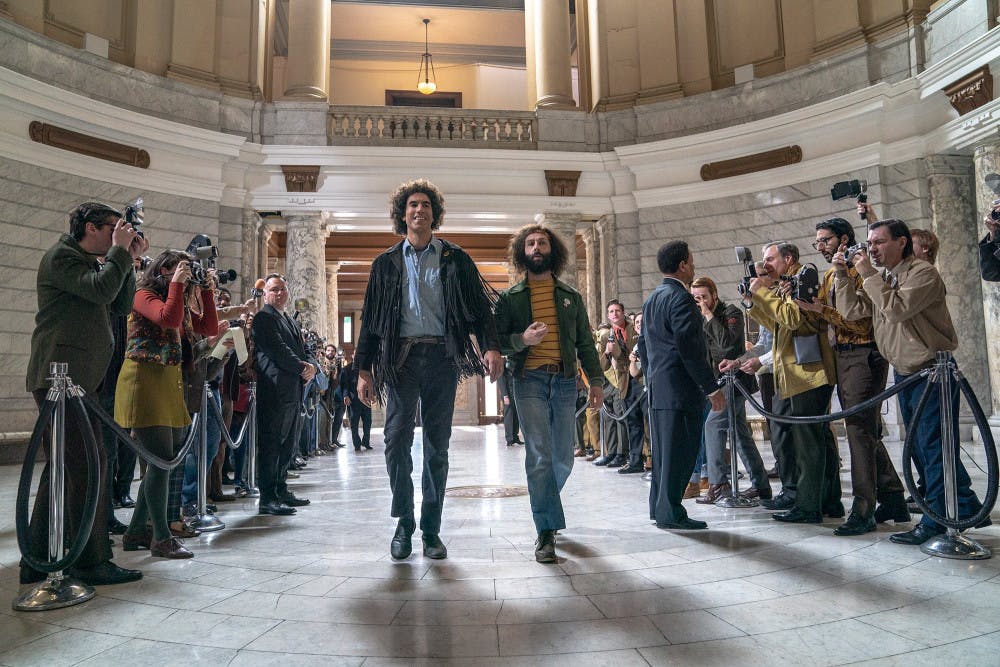Aaron Sorkin has always been known for writing snappy dialogue. Whether it be in Oscar-nominated “The Social Network,” "Moneyball” with Brad Pitt, or his new creation, “The Trial of the Chicago 7,” Sorkin keeps that same realistic dialogue between characters.
With such a heavy and intense subject like a federal trial, it would be easy to make this movie into a boring courtroom drama, but it’s movies like this where Aaron Sorkin succeeds. Sorkin crafts a screenplay about something that should be a serious subject, like a trial where people could go to prison for five years, and turns it into something that is not only informative but entertaining as well.
The ensemble cast is where this movie really shines. You have people who are serious and ones who are funny. Ones who see themselves as a part of a group working for something that is bigger than themselves, and ones who seem to only be in it for themselves. This sets up one of the main points of conflict in the movie, heroes against villains.
Let’s start with the good guys first. Tom Hayden (Eddie Redmayne) and Rennie Davis (Alex Sharp) are heads of the Students for a Democratic Society (SDS). Abbie Hoffman (Sacha Baron Cohen) and Jerry Rubin (Jeremy Strong), who are members of the Yippies, or Youth International Party. David Dellinger (John Caroll Lynch), one of the leaders in the Chicago protests. And to round out our seven we have protestors Lee Weiner (Noah Robbins) and John Froines (Daniel Flaharty).
Our villains, although it is never said directly, are the Attorney General, John Mitchell and Judge Julius Hoffman.
Not only does this create a heroes versus villains dynamic, Sorkin also figures out how to work in the peer versus peer dynamic. This is where we find the true meat of the story.
Look at "The Social Network", the real story is that Mark Zuckerberg really wanted this idea to be known as his and his only. The story that Sorkin tells is one between dueling geniuses, Zuckerberg and Eduardo Saverin.
Deep down, I feel like this is exactly what “The Trial of the Chicago 7” is. Movies usually give their meaning toward the end, and this one does exactly that. In the fight between Abbie Hoffman and Tom Hayden, they yell about what genuine change looks like. To Tom, it is electing someone every four years and having them enact policies. He says this is how you change education and poverty, not by going to jail. Hoffman, on the other hand, says that those things never happen, and they will go right back to where they are now if that is the answer.
Not only do I think this was the best acted and written scene in the movie, but I also think it is Sorkin commenting on what is going on in the United States right now.
It is easy to draw parallels between this movie and the last few months. Riots and protests, an upcoming election and “The whole world [will be] watching.”
At the end of the day, that’s why I like this movie and why people, besides those who love Oscars movies, should go see it. It is easy to look at this movie at face value as an ensemble of characters with a variety of personalities fighting against “a bad guy.” The good news is that you can also read into it, which is why it will certainly win a few Academy Awards.
The Trial of the Chicago 7: Aaron Sorkin’s Courtroom Masterpiece

Heads up! This article was imported from a previous version of The Campus Citizen. If you notice any issues, please let us know.




